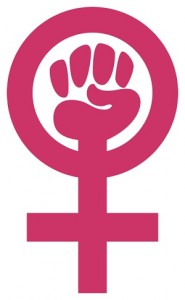Are you tired of prime time television commercials advertising drugs for erectile dysfunction? Well, move over, gentlemen–because the ladies are about to catch up! Today the Food and Drug Administration approved Addyi (pronounced ADD’ee), a prescription drug produced by Sprout Pharmaceutical which promises to increase sexual desire in women.
But I’ve gotta tell you: It ain’t gonna work.

For starters, there are the health warnings on the box–which are substantial, warning patients of serious side effects including dangerously low blood pressure and fainting, especially when used in combination with alcohol or with certain other common medications including antifungals used to treat yeast infections. Other common side effects include nausea, drowsiness and dizziness.
The side effects are so dramatic that doctors will only be authorized to prescribe Addyi if they’ve completed an online certification process and passed a test. Doctors will be required to warn patients of side effects. Pharmacists, who must also complete licensing requirements and pass a test, must remind patients of the dangers if the drug is combined with alcohol.
And unlike the little blue pill for men, Viagra, Addyi won’t work if it’s taken just an hour before sexual activity. No–A woman who wants to increase her sexual appetite will need to take the drug for weeks or months before noticing any difference in her libido.
Because of the health risks, the delayed response, and the need for strict controls, many–including physicians and sex therapists–have circulated a petition urging the FDA to reject the company’s bid for approval, as they had twice before in 2010 and 2013.
According to the Associated Press:
The search for a pill to treat women’s sexual difficulties has been something of a holy grail for the pharmaceutical industry. It was pursued and later abandoned by Pfizer, Bayer and Procter & Gamble, among others. But drugs that act on blood flow, hormones and other biological functions all proved ineffective.
Addyi, known generically as flibanserin, is the first drug that acts on brain chemicals that affect mood and appetite.
Women and their doctors will have to decide whether the drug’s modest benefits warrant taking a psychiatric pill on a daily basis.
And added to the side effects, the drug suffers from abysmally low success rates. According to the New York Times:
In one trial, for instance, women who took the drug had an average of 4.4 “satisfying sexual experiences” a month, compared with 3.7 for women getting a placebo and 2.7 before the study began. The drug did not increase desire more than a placebo when measured by a daily diary, but did do so modestly when measured by a monthly questionnaire.
But I’d like to suggest that despite the severe warnings and the meager results, there is another, more important reason why Addyi won’t achieve the desired goal.
Women are smart.
Women have the most to lose in a casual sexual relationship, or one in which her partner (hopefully, aka her husband) is not gentle and loving and self-donative toward her.
There’s nothing particularly sexy about two bodies rubbing up against one another for mutual relief of sexual need. I mean, the couple may have some kind of fun; they may achieve orgasm together; but that kind of purely kinesthetic relationship is not deeply satisfying and leads to unrest rather than fulfillment.
Dr. Gregory Popcak, in his excellent book Holy Sex: A Catholic Guide to Toe-Curling, Mind-Blowing, Infallible Loving, explains the difference between what he calls “holy sex” and eroticism–which isn’t really “sex” at all. To contrast the deeply intimate sexuality in a loving marriage with the cheap thrills of a casual erotic relationship, Dr. Popcak stands the two side-by-side:
Holy Sex = Very pleasurable. Eroticism = Very pleasurable.
Holy Sex = Driven by intimacy and arousal. Eroticism = Driven solely by arousal.
Holy Sex = Overcomes shame. Eroticism = Causes shame.
Holy Sex = Works for the good of the other. Eroticism = Uses the other.
Holy Sex = Welcomes children. Eroticism = Fears children.
Holy Sex = Shares the whole self. Eroticism = Withholds the self.
Holy Sex = More joyful and vibrant with time. Eroticism = More stagnant and boring with time (like a drug)
Holy Sex = Gives life and health. Eroticism = Brings disease and death.
Holy Sex goes on to discuss the five great powers of holy sex, and the anatomy of infallible lovemaking. Dr. Popcak shines light on common sexual problems for women and for men, and offers frank advice for effective foreplay, overcoming infertility, dealing with infidelity, sexual addiction, and when to seek help (and from whom).
Is there ever a time when a woman’s sexual urges are reduced? Well, yes–and of course, the hormonal smorgasbord which follows labor and delivery is one time that comes to mind. But for most women, the key to unlocking true sexual fulfillment is a life-long committed relationship in which she feels cherished and safe, a partner who wants what is best for her and not only what feels good to him.
Addyi will hit store shelves on October 17. Dr. Gregory Popcak’s Holy Sex is available today from Amazon.















